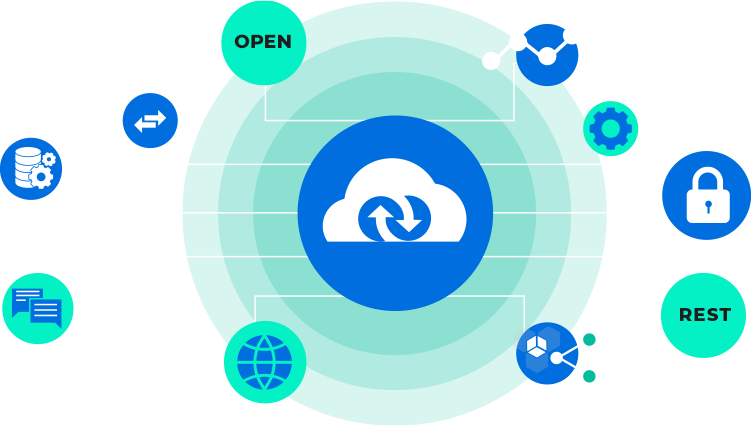API integration
Home » Our expertise » API integration
An API is a set of programming code that enables data transmission between one software product and another. It also contains the terms of this data exchange. API integration is a range of techniques and technologies that allow applications to talk together and share information.
An Application Programming Interface is an interface that facilitates communication and connectivity between two or more software applications. API Integration refers to this seamless connectivity that allows organizations to automate business processes, and enhance the sharing and embedding of data between various applications and systems.

- You need to connect cloud apps.
- You need to connect your best-of-breed solutions.
- You need to quickly and easily create new APIs.
- You need to unlock the value from existing and legacy data sources.
- You need to compose new apps with ease.
- You need to make your teams more strategic.
- You need to improve team productivity across the board.
- API integration platform makes it easier than managing each API individually.
- Because it’s better than doing it alone.
- API integration platform future-proofs enterprise integration.
API integration platform makes it easier than managing each API individually.
API integrations connect different tech stack components making them talk to each other and transfer data seamlessly.
Their importance lies in building automated workflows of different applications integrated via API, being able to get rid of time-consuming manual labor, transfer data that might otherwise require manual input and incur versioning issues saving your time and accelerating your performance.
In terms of policy release, APIs can be private, partner and public.
Private APIs. These application software interfaces are designed to improve solutions and services within an organization. In-house developers or contractors may use these APIs to integrate a company’s IT systems or applications, build new systems or customer-facing apps leveraging existing systems. In case of the apps being publicly available, the interface itself remains to be available only for those, dealing directly with the API publisher. The private strategy allows a company to fully control API usage.
Partner APIs. Partner APIs are openly promoted but shared among business partners who have signed an agreement with the publisher. The common use case for an APIs partner is software integration between two parties. A company granting partners access to data or capability benefits from extra revenue streams. Meanwhile, it can monitor the way the exposed digital assets are used, ensure whether the third-party solutions using their APIs provide a decent user experience and maintain corporate identity in their apps.
Public APIs. They are known as developer-facing or external APIs available for any third-party developers. A public API program stimulates a significant increase of brand awareness and ensures receiving an additional source of income when properly executed.
APIs importance doesn’t just lie in software development but also in business collaboration issues. These machine-readable interfaces, designed for resource exchange, are like delivery services working under the hood enabling technological connectivity.
In this regard, our company are intended to assist a client in solving two main tasks at once:
• to choose a suitable for the specific business needs of the company API;
• to define an efficient way of using it.

